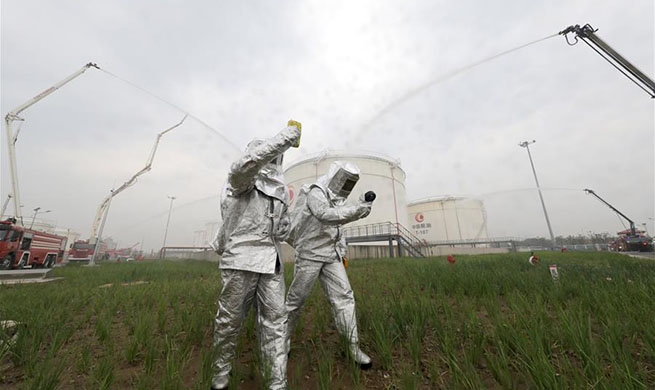VIENTIANE, July 10 (Xinhua) -- The Lao authorities have confirmed that all pork sold at capital Vientiane markets is safe to eat with regular inspections being carried out following the African swine fever outbreak reported, local daily Vientiane Times reported on Wednesday.
Meanwhile, Lao officials have reported an outbreak of swine fever in Vientiane, with about 100 pigs dead. So far, 2,500 pigs nationwide have died from the disease.
Health officials confirmed that it is safe to eat pork, but it should be well cooked. Although the highly contagious disease is fatal to pigs, it does not harm humans, local media on Wednesday quoted Deputy Minister of Agriculture and Forestry Bounkhouang Khambounheuang as saying when updating about efforts to prevent the spread of African swine fever from Salavan province, some 670 km southeast of Vientiane.
The Lao Ministry of Agriculture and Forestry recently called on local authorities in Salavan and other provinces to closely monitor their areas in the fight against the disease.
"Officials from the Ministry of Agriculture and Forestry and Ministry of Health are working with the Industry and Commerce Department to inspect pork products in capital Vientiane markets in the interest of consumer safety," Bounkhouang said.
The inspections were meant to prevent the spread of African swine fever and ensure an adequate supply of pork to meet domestic demand, he added.
The Agriculture and Forestry Department of Vientiane Capital has been maintaining 24-hour surveillance on roads to monitor pork shipments into the capital after Salavan province authorities confirmed outbreaks of African swine fever in June.
The causative organism of African swine fever is a virus in the Asfarviridae family, which is particularly virulent. The condition is characterized by high fever, loss of appetite, hemorrhaging of the skin and internal organs, and death in two to 10 days on average, according to the World Organization for Animal Health.













